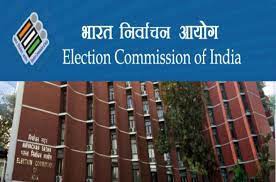Manas Dasgupta
NEW DELH, Oct 14: The Election Commission of India on Friday announced election schedule for the 68-member Himachal Pradesh state Assembly to go on a single phase polling on November 12 but contrary to the expectations it was silent on the election dates for Gujarat.
Even while defending the Commission’s decision to defer the announcement of Gujarat poll days where the state Assembly elections are also due, no explanation was given by the ECI for the long gap between polling of counting of votes in HP. The counting of votes and declaration of results for the HP has been scheduled for December 8, 26 days after the single phase polling.
The prolonged interval raised speculation that the Election Commission was keeping open a window to declare elections in Gujarat soon and had only deferred the announcement, for reasons that are not entirely known. In 2017, elections were announced in the two states separately, but the results were declared on the same day in December. Gujarat voted in two phases.
Replying to questions about silence on the Gujarat elections, the Chief Election Commissioner Rajiv Kumar said they considered various factors, including “convention”, the gap between last dates of the two states’ assembly terms, and weather, to arrive at the decision. “We wanted to complete the HP polling before snowfall,” Kumar said.
The term of the Himachal Pradesh assembly, which has 68 seats with 35 as the majority, ends on January 8 while the term of the Gujarat assembly ends on February 18. Usually, when these terms end within six months of each other, elections are held together. “There is a gap of 40 days between the end of the assemblies of the two states. According to the rules, it should be at least 30 days so that one result doesn’t impact the other,” Mr Kumar said, denying any rules had been violated.
“There are a number of factors, like weather. We want to hold the Himachal elections before the onset of snow,” he explained, adding that the Commission had held consultations with “various stakeholders.” This is only the second time in recent memory that elections in the two states will be held separately.
Last time, in 2017, the Election Commission had faced criticism for separating the elections, with the opposition accusing it of doing so to allow Prime Minister Narendra Modi to announce last-minute sops for his home state. Under fire, the then Chief Election Commissioner AK Joti had defended the delay, saying it ensured that the state did not spend a long period under the Model Code of Conduct without “justification” and that the state government had requested for it because of rains and flooding.
This time, in another change, the period for the Model Code of Conduct – which bans the announcement of government measures that could influence voters – has been reduced to 57 days from 70 days.
In the last Himachal Pradesh assembly elections, the BJP won 44 seats and Congress 21. Independents scored two and the CPI(M) won one seat. In percentage terms, the BJP won 48.79 per cent of the total valid votes, followed by the Congress (41.68 per cent) and Independents (6.34 per cent).
This time, Arvind Kejriwal’s Aam Aadmi Party (AAP) hopes to make the usually two-sided contest a triangular fight by foraying into the Himalayan state that borders Punjab, which it won earlier this year. More than 55 lakh people are eligible to vote in the polls, including 1.86 lakh first-time voters, 1.22 lakh aged above 80 and around 1,100 who are above 100 years of age.
Following is the Poll Schedule announced for HP:
Issue of notification: October 18, 2022
Last Date of filling nominations: October 25, 2022
Scrutiny of nominations: October 27, 2022
Last date for withdrawal of candidatures: October 29, 2022
Date of poll: November 12, 2022
Counting of votes: December 8, 2022
The CEC said postal ballots for people for over 80 years, persons with disabilities and COVID patients would be available. The entire process would be videographed. Each polling station to have ramps, volunteers, drinking water, waiting shed, toilet with water facility and adequate lighting arrangements, Kumar said adding that all polling stations would be on the ground floor.
There would be women-only polling stations, where even security staff would be women, he said. The ECI is planning to have at least one such polling station in each Assembly constituency. This time, the ECI also plans to add person with disabilities as polling staff, he added.

